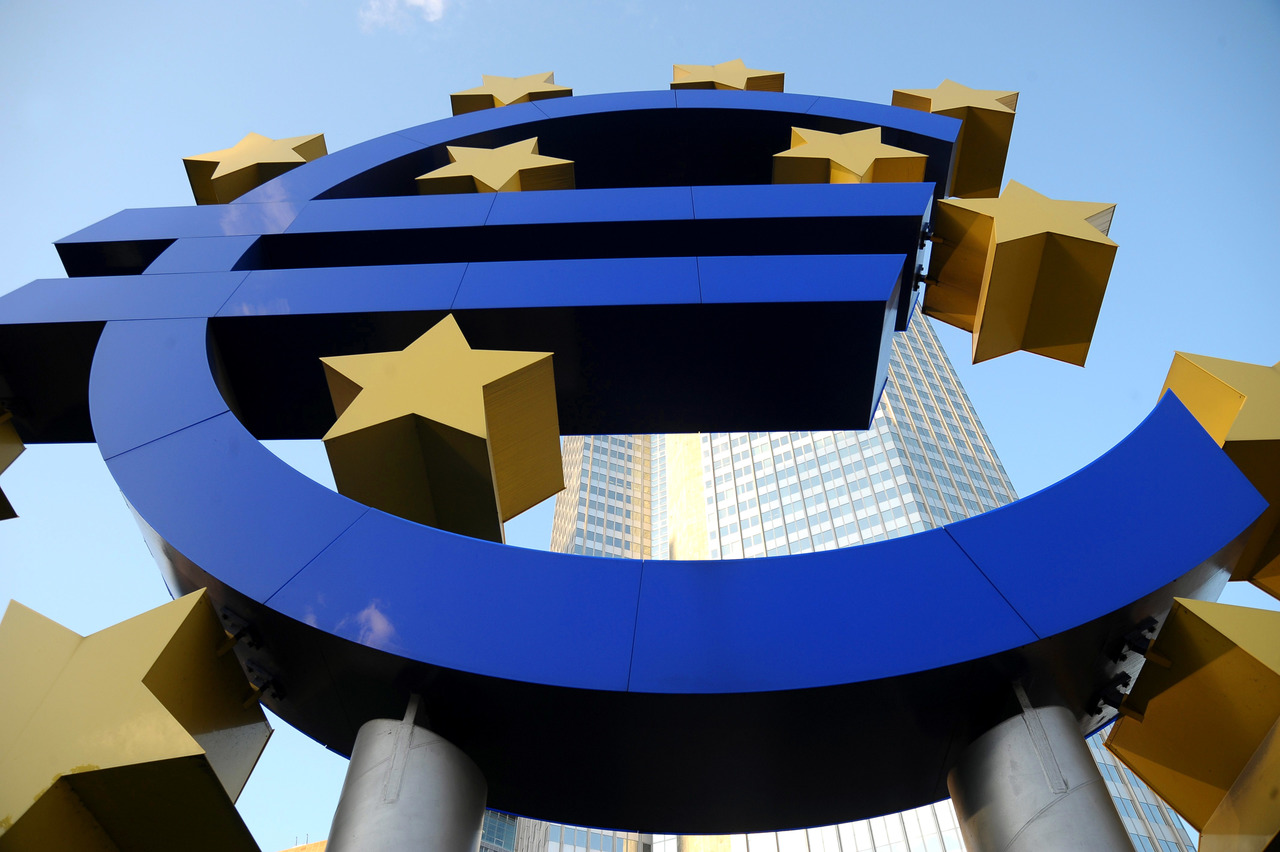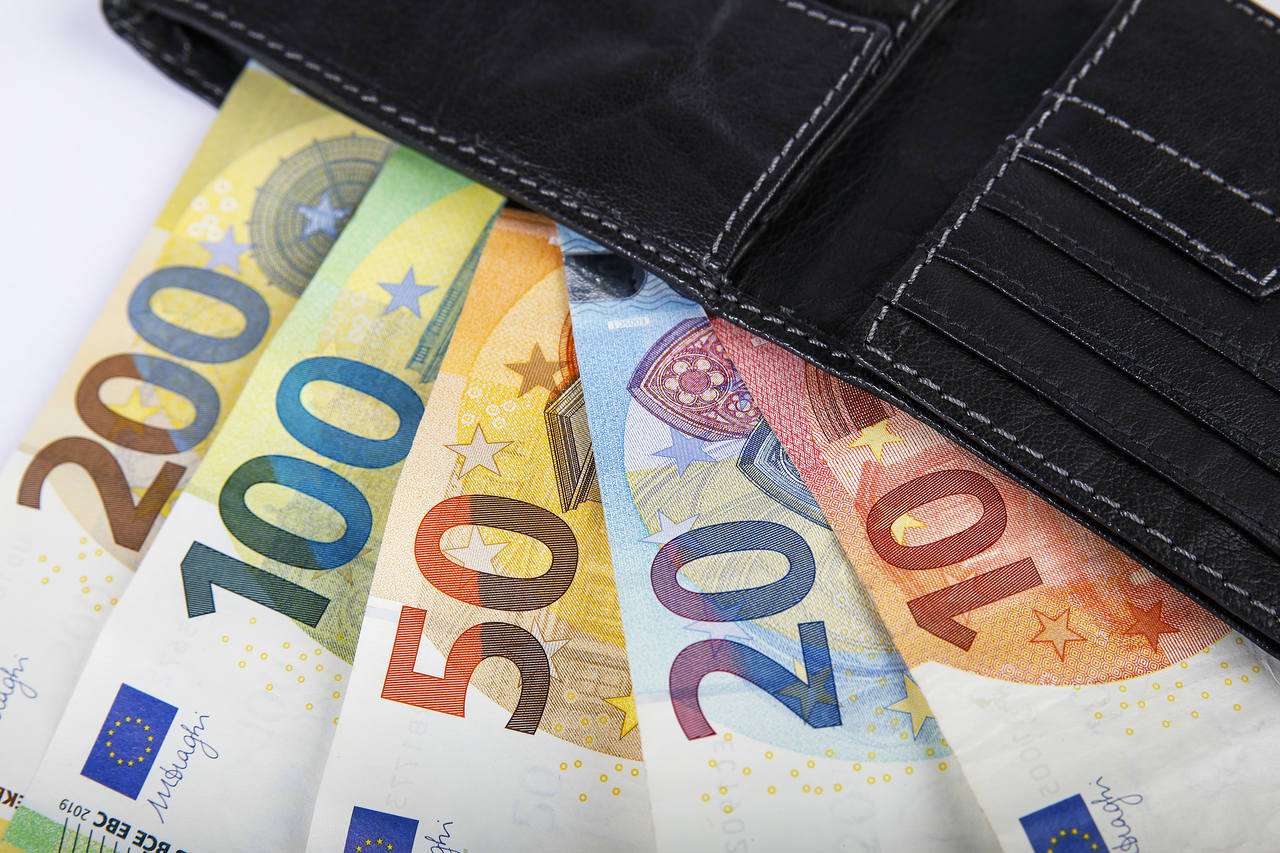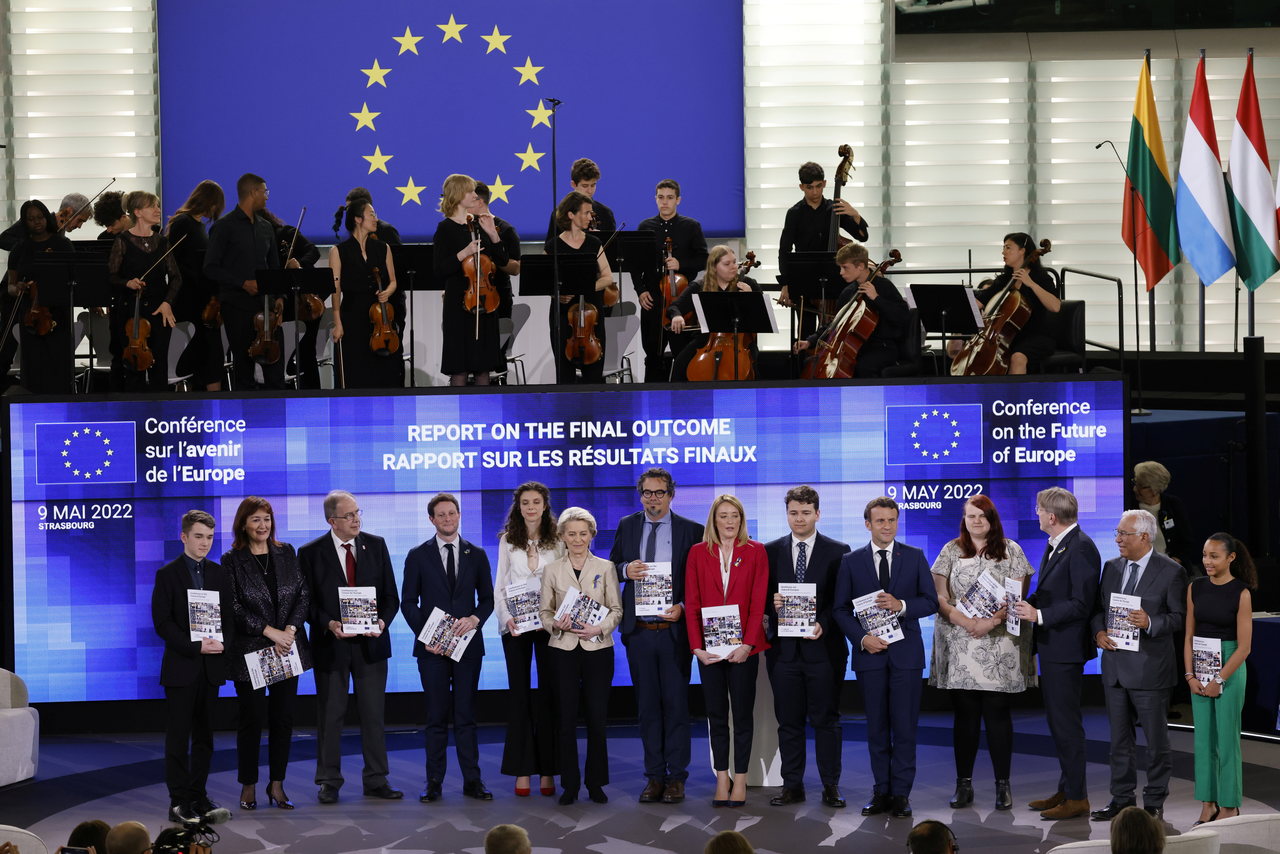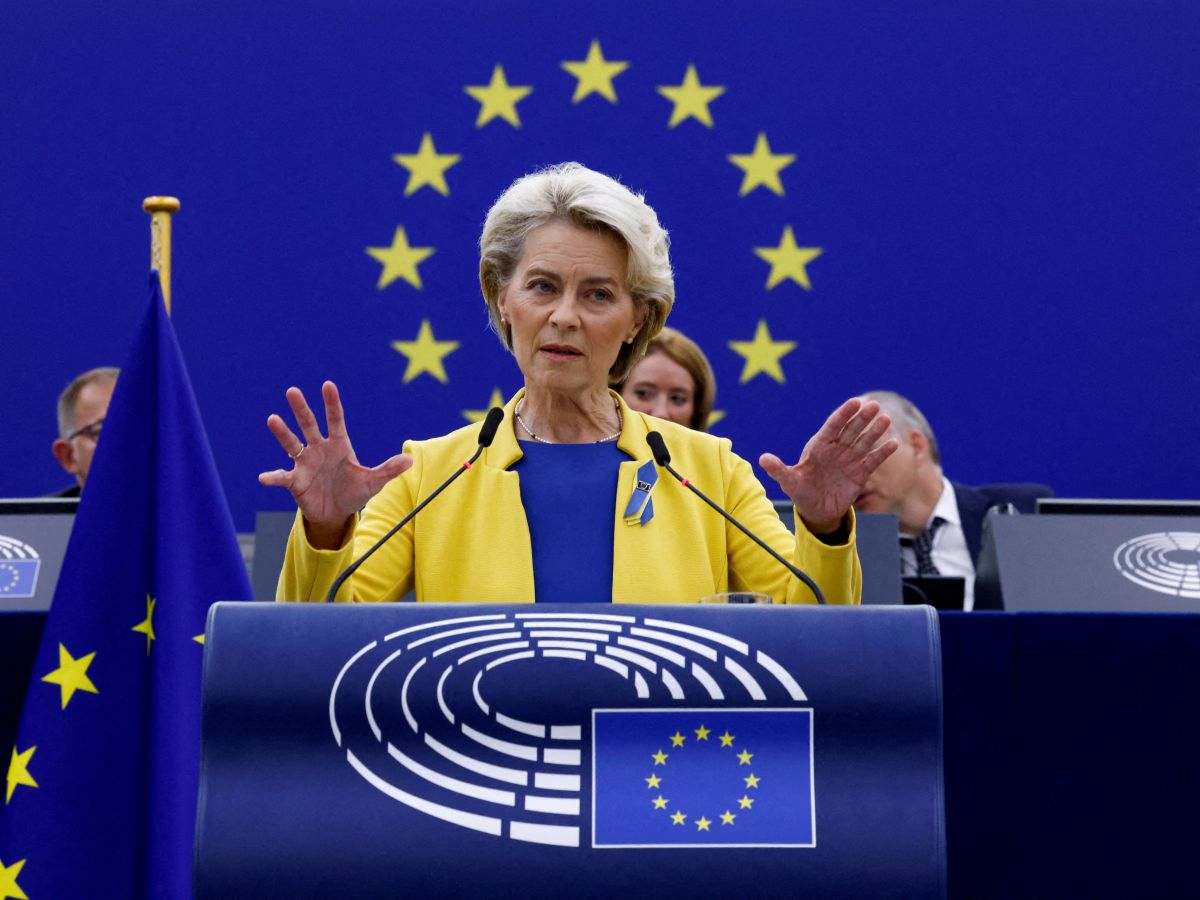Weighing the Prospects for a Revision of the EU Multiannual Budget 2021-2027
The actions undertaken by the EU in relation to Russia’s invasion of Ukraine require considerable funding. An increase in the community budget, as advocated by the European Parliament, is, however, unlikely chiefly due to resistance from the countries that are net payers. Consequently, the EU will attempt to reprioritise funds within the budget and modify the plans for spending from the recovery fund. In the absence of consensus on new sources of revenue for the community, the likelihood of resorting to common borrowing for the purpose of new undertakings is low.
 Radoslaw NAWROCKI / Forum
Radoslaw NAWROCKI / Forum
EU Budget in the New Political and Economic Context
The EU’s reaction to the Russian invasion entailed a number of expenditures that were not foreseen in the 2021-2027 Multiannual Financial Framework (MFF). To provide humanitarian aid to Ukraine, the EU has mobilised budgetary reserves, but they are limited. More than €3 billion from the European Peace Facility, a €5.7 billion fund over the seven-year period intended to support the armed forces of partner countries and outside the MFF for formal reasons, has already been used for military assistance to Ukraine. Funds from the cohesion policy were allocated for needs related to the reception of refugees from Ukraine. Some cohesion funds and €20 billion from the EU emissions trading system (ETS) will be used to implement the REPowerEU strategy aimed at achieving independence from imports of energy resources from Russia.
Due to increasing energy prices, the Member States set up programmes to support firms and citizens. Similar to the concerns at the height of the COVID-19 pandemic, the energy crisis has provoked fears that differences in the members’ capabilities to take on additional spending could disrupt competition on the single market. A German assistance scheme worth €200 billion, presented in October, was criticised especially in Southern Europe where politicians have been calling for strengthening community mechanisms for supporting the economy. They justify their pleas also by making reference to a programme for subsidising green technologies created by the U.S.
Another challenge, besides new spending needs, is high inflation in the EU (11% in November), which entails a drop in the real value of the MFF. Calculations regarding the spending and contributions to yearly budgets are made based on the assumption that inflation remains at 2%.
Calls for a Revision of the Multiannual Budget
The European Parliament (EP) already this past spring suggested that the MFF, designed in 2020, leaves the EU unable to tackle new challenges. The chamber formulated more concrete demands in a resolution adopted on 15 December. It was supported by 66% of parliamentarians, including nearly all members of the four largest political groups—Christian and Social Democratic, centrist, and Green. The EP called upon the European Commission (EC) to come up with a revision of the MFF that would entail higher spending. Lawmakers argue that apart from enlarging the pool of money for crisis management, more money is needed above all for the energy transition, support for EU industry, needs related to larger migration flows, work on common military capabilities, and development aid. Yet, the resolution did not mention any concrete sums.
EP criticised the Commission for putting forward new projects without appropriate funding (i.e., genuine new resources rather than money reassigned from existing projects). Parliamentarians suggested the creation of a permanent mechanism that would facilitate the use of eurobonds to boost EU financial means in emergencies. They also urged Member States to use the so-called passerelle clause included in the Treaty on the EU and replace unanimity with qualified majority voting in the procedure for the adoption of the MFF.
The EC declared that in July 2023 it will publish the conclusions of an “ambitious” review of the MFF. This suggests that apart from suggesting transfers within the budget it could encourage the Member States to increase spending and therefore also contributions to the budget. Alternatively, the EC could recommend using common debt again. The latter could finance the sovereignty fund mentioned by EC President Ursula von der Leyen in her State of the Union address in September as an additional source of investments necessary to strengthen EU industry. Commissioners from France and Italy, Thierry Breton and Paolo Gentiloni, in a press article advocated using eurobonds again.
Divisions Among Member States
The prospect of higher EU spending is attractive for its largest beneficiaries, the countries of Central and Southern Europe. The latter refer to the positive experience of the implementation of the Next Generation EU (NGEU) recovery fund and argue that a similar solution could be a remedy for the current crisis. The coalition of the “frugal” states (net contributors to the EU budget: Austria, the Netherlands, and the Nordic countries) opposes using common debt, which it perceives as a mechanism that serves the interests of the highly indebted countries of Southern Europe. German Minister of Finance Christian Lindner, hailing from the liberal party, also figures among the sceptics (though his coalition partners from the Green Party are open to common debt). The frugals are equally loath to contribute more to the EU budget, especially at a time when they need to finance their own support schemes. They see the NGEU as a pool of money that could be used in relation with new challenges. Out of the €338 billion allocated to grants for the Member States, €92 billion has been disbursed so far. Agreeing to a larger EU budget would contrast with frugals’ policy focused on promoting savings and reforms geared to improve competitiveness and reduce public debt.
The debate on common debt is complicated by the lack of agreement around new sources of EU revenue, which should provide resources to repay bonds issued to create NGEU. Although the Member States in 2020 agreed in principle to modify the system of EU revenue, some of them harbour doubts about it. This is partly due to fears that once the Union is granted the right to a share of the proceeds from charges that are similar to taxes (such as payments related to CO2 emissions within ETS), politicians who lean towards federalism will increase the pressure for enlarging community competences in this area. The parliament of Sweden assessed the EC proposal regarding new sources of revenue as incompatible with the principle of subsidiarity. Moreover, the current system, in which more than 70% of the budget is financed via direct contributions by the Member States, strengthens the net payers. Poland, though in favour of changes to the system of EU revenue, considers the EC proposal that assigns parts of the proceeds from the ETS to the EU budget as an excessive burden to the less affluent countries where industry and the energy sector generate high emissions.
Conclusions and Prospects
The protracted war, unstable energy prices, and high inflation in the EU will contribute to growing pressure on increasing EU spending. However, reaching consensus on a revision of the MFF that would entail larger contributions from the Member States is an improbable scenario. First, the EC and Member States will attempt to use the room for manoeuvre within EU policies and the recovery fund, or act outside the EU budget. In December, the EU Council agreed to increase the budget of the European Peace Facility by €2 billion in 2023. Creation of a new emergency fund (NGEU 2.0) is possible but probably on a smaller scale and in a format that offers beneficiaries chiefly loans rather than non-repayable grants. Net payers do not want the assistance mechanism created thanks to eurobonds—approved in 2020 as a one-off undertaking—to become a standard emergency tool. In addition it is improbable that another emergency fund could be created before a deal on new revenue have been reached.
For Poland, it is important that the EU has adequate financial capacity to strongly support Ukraine and the Member States in relation with war-related challenges without stripping community policies of resources. Increasing the EU budget would serve that purpose. It would also be beneficial for Poland if the new instruments to support EU economy enable members to boost their financial capacity, for instance through access to loans on attractive terms. An EU reaction limited to relaxing state aid rules would serve only the most affluent states.





